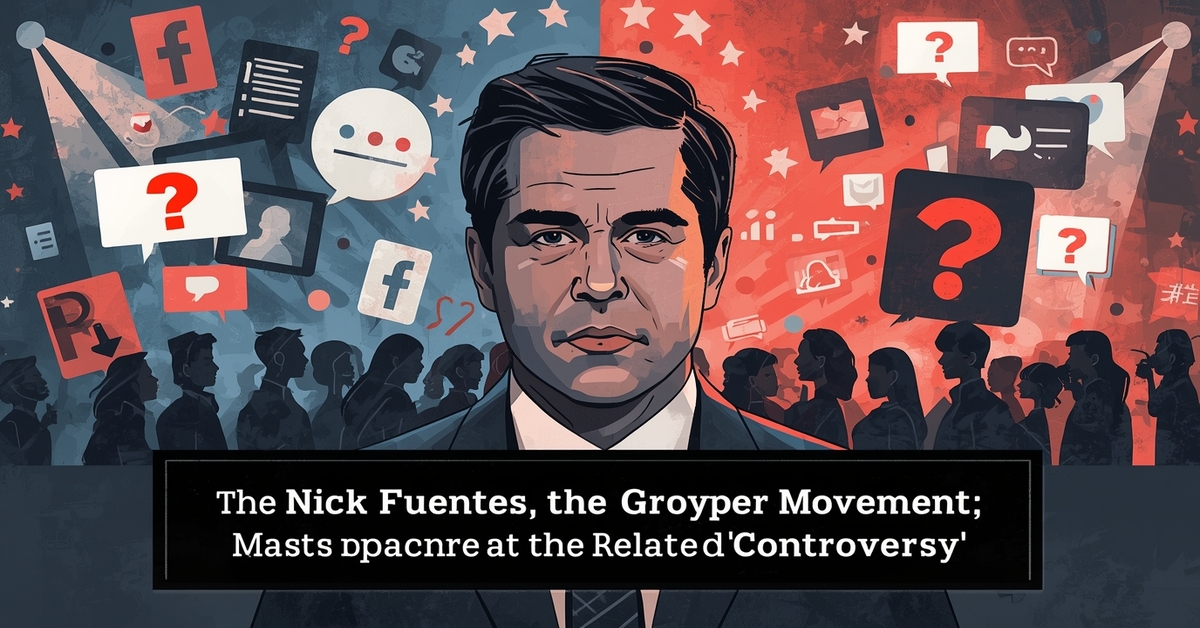Table of Contents
Nick Fuentes, the Groyper Movement, and the Charlie Kirk Shooting Suspect: What We Know
Introduction
In recent weeks, the controversial Groyper movement and its leader Nick Fuentes have returned to national headlines. The renewed attention comes after reports suggested that Tyler Robinson, the suspect in the fatal shooting of conservative commentator Charlie Kirk, allegedly left cryptic messages on bullet casings referencing internet culture and the Groyper meme. This development has sparked debates about the influence of extremist online communities and their growing presence in U.S. politics.
Who Are the Groypers?
The term “Groyper” refers both to an internet meme—a smug, chubby version of Pepe the Frog—and to a group of far-right activists who identify with it.
Origins: Emerged in online forums around 2017–2018.
Beliefs: Often described as Christian nationalist, anti-immigration, and skeptical of mainstream conservatism.
Tactics: Known for confronting conservative figures in public forums, asking provocative questions about immigration, Israel, and LGBTQ issues.
Nick Fuentes: The Face of the Movement
Background: Nick Fuentes, a far-right livestreamer and activist, has positioned himself as the leader of the Groypers.
Ideology: Promotes “America First”, Christian nationalism, and has a history of inflammatory remarks.
Influence: Despite being banned from major platforms, Fuentes continues to attract a loyal base through alternative platforms.
Groypers vs. Mainstream Conservatism
One of the most high-profile clashes came in 2019 during the so-called “Groyper War” against Charlie Kirk, founder of Turning Point USA.
- Groypers confronted Kirk at Q&A events, criticizing TPUSA’s stance on immigration and LGBTQ rights.
- The clashes highlighted a deepening rift between establishment conservatism and far-right nationalist movements.
Charlie Kirk Shooting Suspect and Groyper References
The recent incident involving Tyler Robinson has revived discussions about the Groypers:
- Reports (Vanity Fair, Sept 2025) indicate Robinson allegedly marked bullet casings with references tied to internet culture and the Groyper meme.
- While investigators have not publicly confirmed a direct ideological link, the discovery has raised concerns about the radicalization pathways from online subcultures to real-world violence.
Why This Matters
- Mainstream Politics: The Groypers’ ability to disrupt and influence conservative conversations shows their reach.
- Radicalization: Online memes and humor can mask extremist recruitment strategies.
- Security Concerns: Incidents like the Robinson case highlight the risk of internet-born ideologies moving into offline violence.
Public & Political Reactions
- Critics of Fuentes argue that his rhetoric fuels extremism and division.
- Supporters claim the Groypers are defending “true conservatism” against establishment compromise.
- Conservative leaders like Charlie Kirk have condemned the movement as harmful to the broader Republican coalition.
The Bigger Picture
The Groyper movement reflects how internet subcultures are reshaping political discourse:
- Memes as propaganda: Simple images become symbols of ideology.
- Alternative platforms: Deplatformed figures like Fuentes thrive on niche platforms.
- Youth appeal: The use of humor and online culture helps recruit younger audiences.
Conclusion
The Groypers, led by Nick Fuentes, remain a controversial force on the American right. With the latest developments tying their imagery to a violent crime suspect, their movement is once again under scrutiny. Whether this leads to further mainstream rejection or fuels their anti-establishment narrative will shape the far-right’s influence in the coming election cycles.















